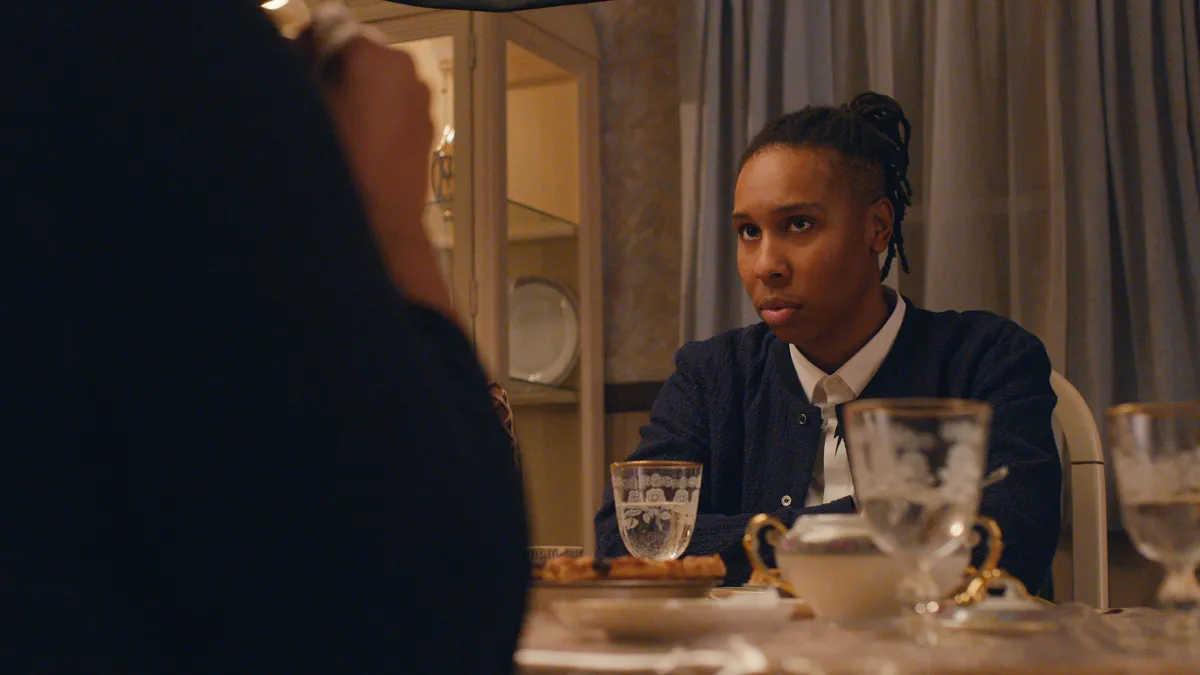As part of her Vanity Fair interview, Emmy-winning writer and The Chi creator Lena Waithe recently addressed the allegations against her Master of None co-writer Aziz Ansari. In a January article on Babe.net, Ansari was accused of sexual misconduct and coercive, aggressive behavior during a sexual encounter. Waithe had previously said, “it’s not always black-and-white,” but here she elaborated on how she hoped the conversation about that encounter would move society forward.
“At the end of the day, what I would hope comes out of this is that we as a society educate ourselves about what consent is—what it looks like, what it feels like, what it sounds like,” Waithe said to Vanity Fair. “I think there are both men and women who are still trying to figure it out.”
“We need to be more attuned to each other, pay more attention to each other, in every scenario, and really make sure that, whatever it is we’re doing with someone else, they’re comfortable doing whatever that thing is, and that we’re doing it together,” she continued. “That’s just human kindness and decency.”
This builds on Waithe’s previous response to the Ansari discussion. “Here’s the truth — in every situation, it’s not always black-and-white,” she said to KPCC. “And I know that’s simple for people, and it’s easy for people to [ask], Whose side are you on? There are no sides, really, in some of these scenarios. I’m not on Harvey Weinstein’s side, I’m not on Kevin Spacey’s side. But I think you have take each situation [individually]. You can’t just say, Well, I’m on this person’s team, or I’m on that person’s team. It doesn’t work that way.”
“I think a big thing is, we have to have a dialogue,” she continued. “And I think if we’re unwilling to have a dialogue we’re gonna continue to keep hitting our heads against the wall. We have to start reeducating ourselves about what consent is, what’s appropriate behavior at the workplace. We have to create codes of conduct. Those are things that we need. ‘Cause also I think there’s an element of — how do you know if you’re breaking a rule if you aren’t aware of the rules? Or how do you know what appropriate behavior is if no one’s ever communicated to you what appropriate behavior is? Even though some people may assume, Well, of course we all know what appropriate behavior is, but some people may not know.”
The conversation around the Ansari situation has been notoriously fraught, with even Saturday Night Live parodying our society’s deep inability to discuss consent. In part, this is because we as a society still don’t have the words or the tools for understanding coercion in a world where women’s pain is often treated as an accepted and expected part of intercourse. In part, it’s because of the way we discuss heterosexual sex as something that men actively pursue, and women, as “The Thing That’s Gonna Give Me Sex If I Press the Right Buttons,” just occasionally sigh and agree to. In part, it’s because of the way we depict women’s participation in sex in mainstream pornography, film, and television.
In that regard, I think Waithe is completely correct that we need to have these conversations, in order to create that vocabulary and that base-level understanding of what positive sex looks like. However, I also think there’s another need that Waithe hasn’t addressed here. Men in particular need to reevaluate the way they interact with their sexual partners, the ways they’ve initiated and pursued sex in the past, and ask themselves whether they prioritized joy and pleasure for both parties, or merely prioritized getting what they wanted.
Because a cultural conversation about consent absolutely is necessary. But it’s only going to be effective if men are willing to listen to it and learn from it.
(via IndieWire; image: Netflix)
Want more stories like this? Become a subscriber and support the site!
—The Mary Sue has a strict comment policy that forbids, but is not limited to, personal insults toward anyone, hate speech, and trolling.—








Published: Mar 23, 2018 12:25 pm